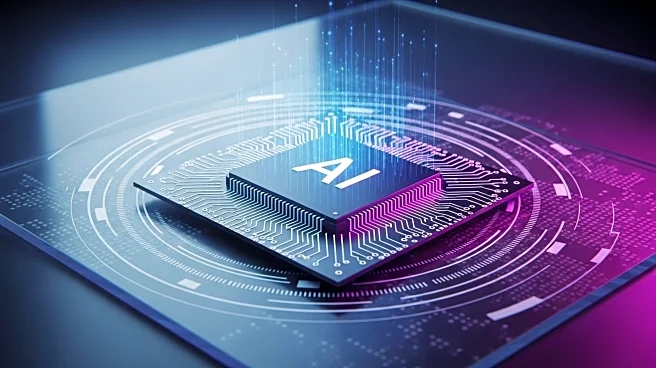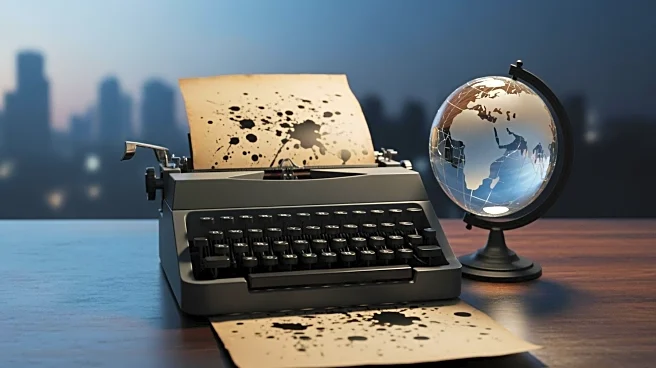What is the story about?
What's Happening?
Anthropic, a leading artificial intelligence company, has reached a tentative settlement in a class-action lawsuit filed by a group of authors. The lawsuit accused Anthropic of using unauthorized copies of literary works to train its AI chatbot, Claude. The proposed settlement, which could amount to $1.5 billion, is pending judicial approval and is considered potentially the largest copyright recovery in history. The case involves approximately half a million works, with authors potentially receiving an average of $3,000 per piece. This settlement is seen as a landmark moment for intellectual property rights in the AI era. Justin Nelson, the attorney for the authors, described the settlement as 'the first of its kind in the AI era.' Aparna Sridhar, Anthropic’s deputy general counsel, stated that the court's findings affirmed the company's training methods as 'fair use.'
Why It's Important?
The settlement between Anthropic and the authors could have significant implications for the AI industry and copyright law. It highlights the growing tension between creative professionals and AI developers over the use of copyrighted material in training AI models. This case may set a precedent for how AI companies handle copyrighted content, potentially influencing future legal battles. The outcome is being closely watched by authors and AI firms alike, as it could redefine the boundaries of fair use in the context of AI development. High-profile authors like George R.R. Martin and John Grisham have also initiated legal actions against AI companies, underscoring the widespread concern among creatives about copyright infringement.
What's Next?
If the settlement receives judicial approval, it could pave the way for similar lawsuits against AI companies, prompting them to reassess their use of copyrighted material. The case may also influence ongoing and future legal actions, such as the lawsuit filed by Ziff Davis against OpenAI for alleged copyright violations. As the legal landscape evolves, this settlement could serve as a benchmark for defining fair use and copyright in the AI industry, potentially leading to new regulations and guidelines for AI developers.
Beyond the Headlines
This case highlights the ethical and legal challenges faced by the AI industry as it navigates the use of copyrighted material. It raises questions about the balance between technological advancement and the protection of intellectual property rights. The outcome of this settlement could lead to a broader discussion on the ethical implications of AI development and the need for clear guidelines to protect the rights of creators while fostering innovation.















